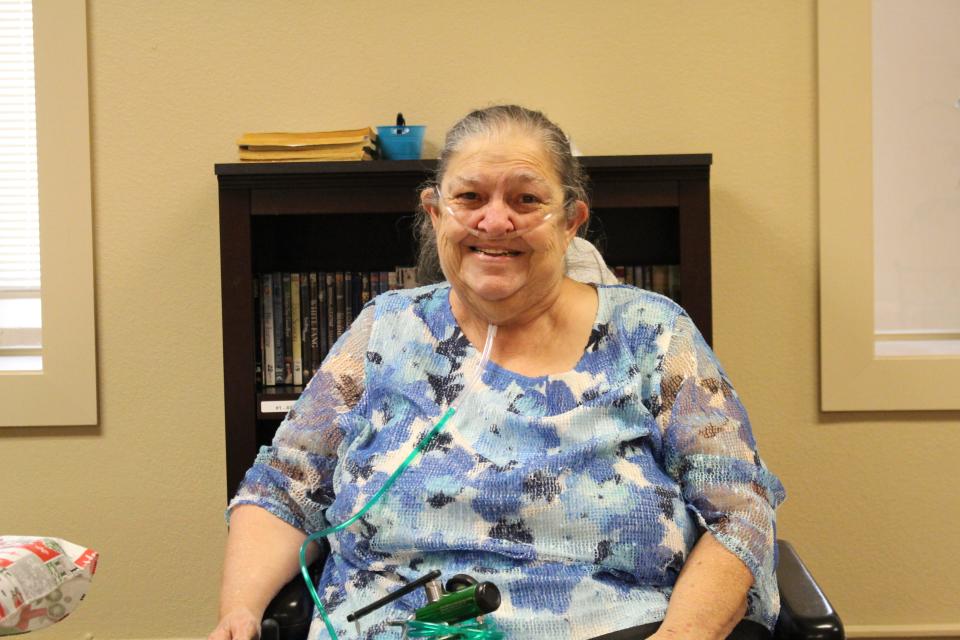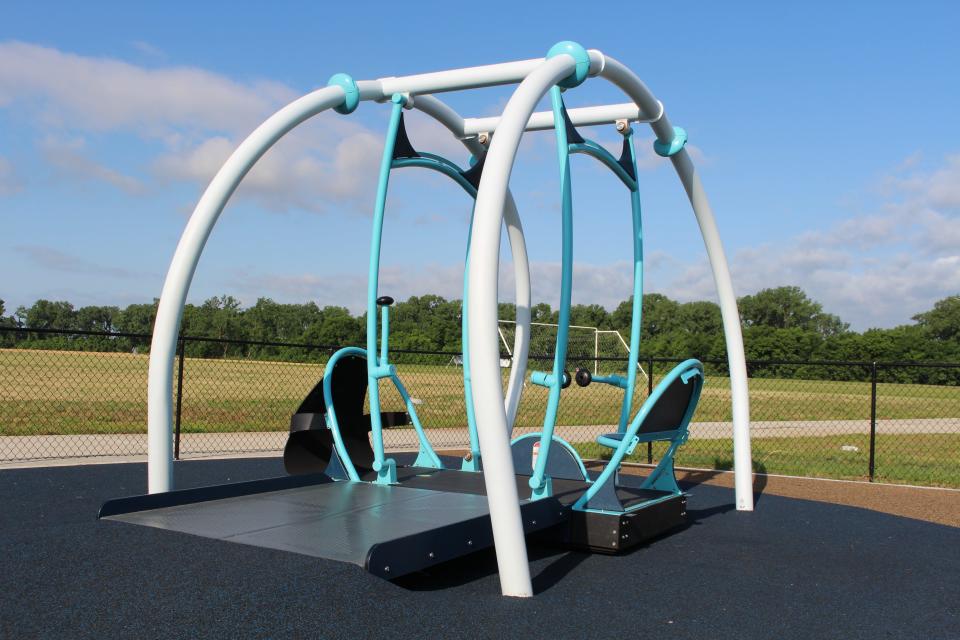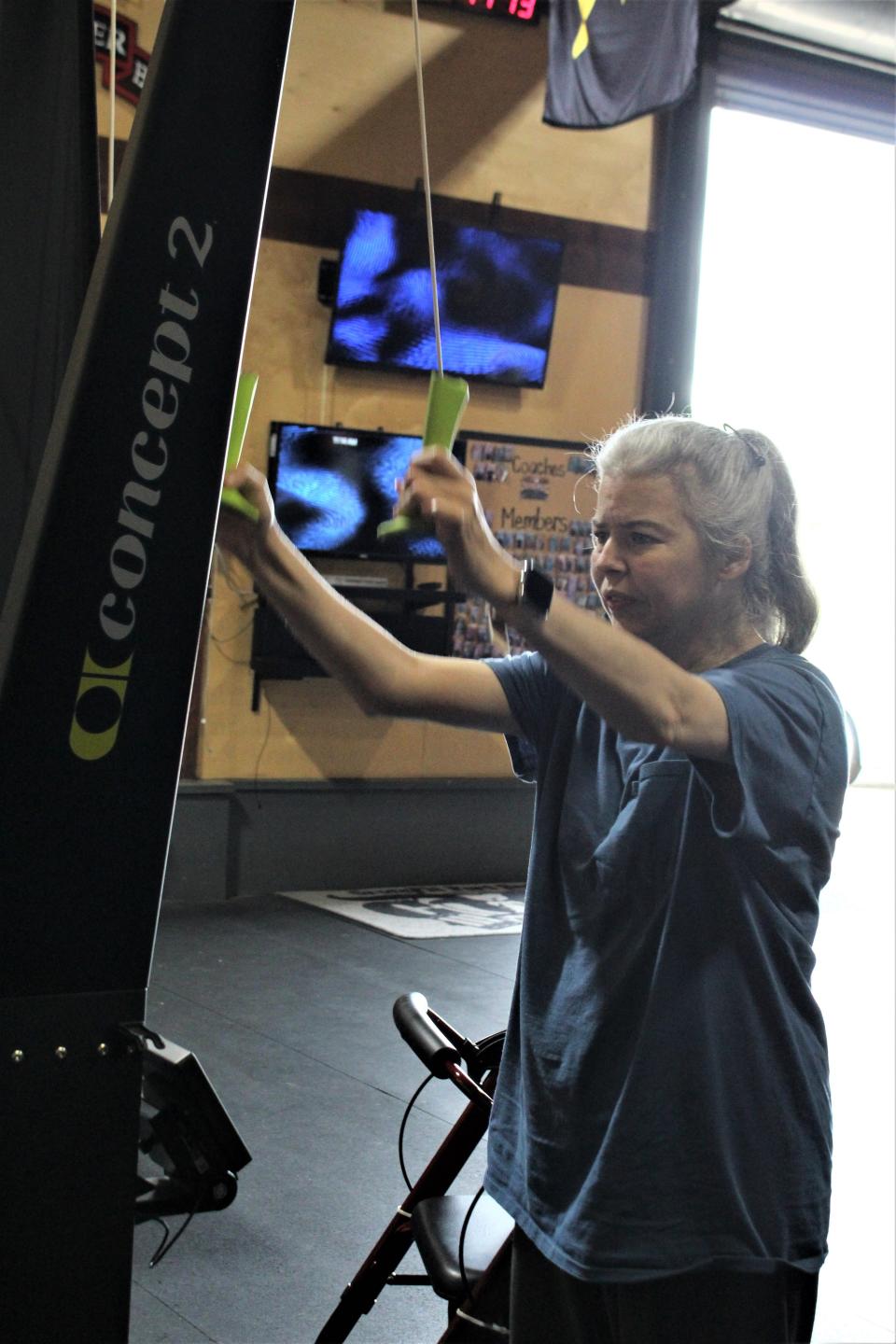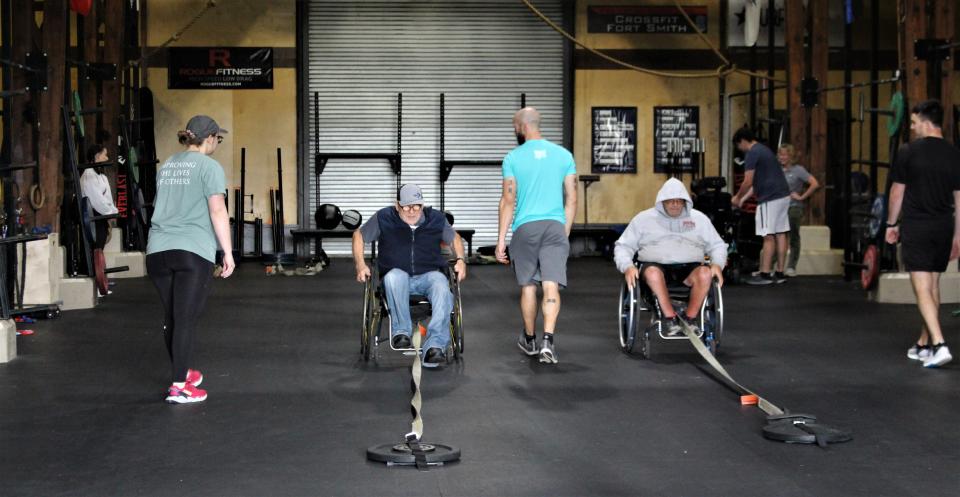'They're important': What's being done to improve accessibility for people with disabilities
Equitable access to amenities and services goes beyond building flourishing communities. For people with disabilities, accessibility is foundational to life.
Nearly one in five people has a disability in Fort Smith, 2% higher than the state average, according to U.S. Census data.
More: Disability rights advocacy in Arkansas
Cheryl Davis moved to Fort Smith from Georgia in 2012 and found a warm and accepting community.

“I’ve met so many wonderful people here,” Davis said, sitting inside the community room at Midtown Apartments. “I’ve had more friends between here and church than I've had my whole life.”
Read this: UAFS opens art series in Bakery District
In other news: Old Fort Days chutes swing wide open
Accessible and well-maintained sidewalks give Davis, who is a wheelchair user, a way to access doctors’ appointments, church services and stores.
Traveling down Towson Avenue, Davis said she has encountered sections without sidewalks.
“So, you can’t really go in your chair,” she said. “Then, when you cross the road, you’ve got a whole lot of gravel and no sidewalk … I had to deal with the gravel, and it was not fun. I just went very slow. Hopefully, I wouldn’t get stuck in it.”
Sidewalk repairs are underway across the city. In early May, the city board of directors approved another phase of the 2022 Sidewalk Program, which will repair more than 20,000 feet of sidewalk across Fort Smith. The city is also widening the sidewalks at Creekmore Park to improve access.
The community works to improve accessibility
The city has completed or is in the process of completing other accessibility projects including wheelchair lifts, enunciator systems that make announcements and kneeling features on buses that create a lower step for people entering and exiting the bus.
Locations that have inclusive playgrounds in Fort Smith include John Bell, Jr. Park and Creekmore Park and Martin Luther King, Jr. Park.
Parents of children with disabilities advocated for accessibility at the city’s parks.
In September, Heather Carroll, a parent and Fort Smith resident, told the Times Record about the importance of widespread inclusivity.
“We need to realize that just because that maybe we don’t interact with this population on a daily basis that they’re still here,” Carroll said. “They’re in our schools, our churches, our neighborhoods. They’re our friends and our family and they’re important.”

Residents have voiced concerns about wheelchair-accessible swings being occupied by children without disabilities, preventing children who are wheelchair users from using them.
“The point of inclusivity is to have everyone and to allow it to be used by everyone,” said Carl Geffken, city administrator. “When there are parents, guardians with children that really want to use a feature that is inclusive, we want them to be able to use it … but having a sign that is a nice reminder is a good idea.”
Community establishes accessible spaces
To have truly inclusive communities, accessibility must be addressed in all aspects of life beyond public amenities.
Classes hosted by Kaci and Reed Handlery at CrossFit Fort Smith adapt equipment and design exercise routines for people with Parkinson’s disease and spinal cord injuries.
CrossFit Fort Smith is a wheelchair-accessible gym with completely flat floors, accessible bathrooms and parking. The adaptive equipment including Concept 2 skiers and rowers can be used by people using wheelchairs or walkers or while standing.
Other equipment includes adaptive grip aides that allow individuals with impaired grip strength to hold onto a weight, exercise band or other items.
“I’m a little bit stubborn and don’t use the grip aides they give us,” said Angie Dusty, a Muldrow resident participating in the spinal cord injury class. “... Having to do it myself, I have gained strength in my hands as well.”

Kaci and Reed Handlery are both assistant professors in the School of Physical Therapy at the Arkansas Colleges of Health Education.
More: Northside High School grad Chris Carter returns as new principal
Previously: Fort Smith School Board has new members, three incumbents elected
When they moved to Fort Smith from South Carolina in 2020, they noticed that there was “no programming in the city of Fort Smith or anywhere in the River Valley region for individuals who are wheelchair users who want to go work out at the gym,” Kaci Handlery said. “What we see is gyms are typically largely inaccessible, wheelchair users are unable to transfer to pieces of equipment, whether that be because of set-up or because the equipment is simply not accessible.”
The Handlerys also noted a lack of local programming for people with Parkinson’s disease, the second-fastest-growing progressive neurological disease in the United States. They decided to create free classes for these two populations in partnership with CrossFit Fort Smith.

The grant-funded classes, which take place on Tuesdays and Thursdays and have about 20 participants each, are a part of a research study.
The Handlerys, as researchers at the Arkansas Colleges of Health Education, assess the participants’ physical activity through research-grade monitors, similar to Fitbits, Kaci Handlery said.
They are assessing measures of strength, cardiovascular endurance, self-reported measures of quality of life and functional mobility, and, specifically for the Parkinson's class, measures of balance.
Cheryl Perry, an Alma resident, joined the class for the first time on May 26. She has a spinal cord injury as a result of a motorcycle accident and has a goal of returning to cycling through hand cycling.
“I got into Pandemonium, which is a Tulsa group of women riders,” Perry said. “… And so, I asked them, ‘What would you think about me doing (hand-cycling)?’ They were very excited. Now, I’ve got a ways to go, but I don’t mind.”
Chris Cross, a Fort Smith resident also in the spinal cord injury class, said the participants from across the region have become close-knit over the course of a few weeks.
“Just like now,” he said gesturing the group, “we’ll sit and talk about everyday life, things that someone may need that someone else may have … It’s a small community that developed just like family that quick.”
This article originally appeared on Fort Smith Times Record: Fort Smith residents aim to improve disability accessibility

